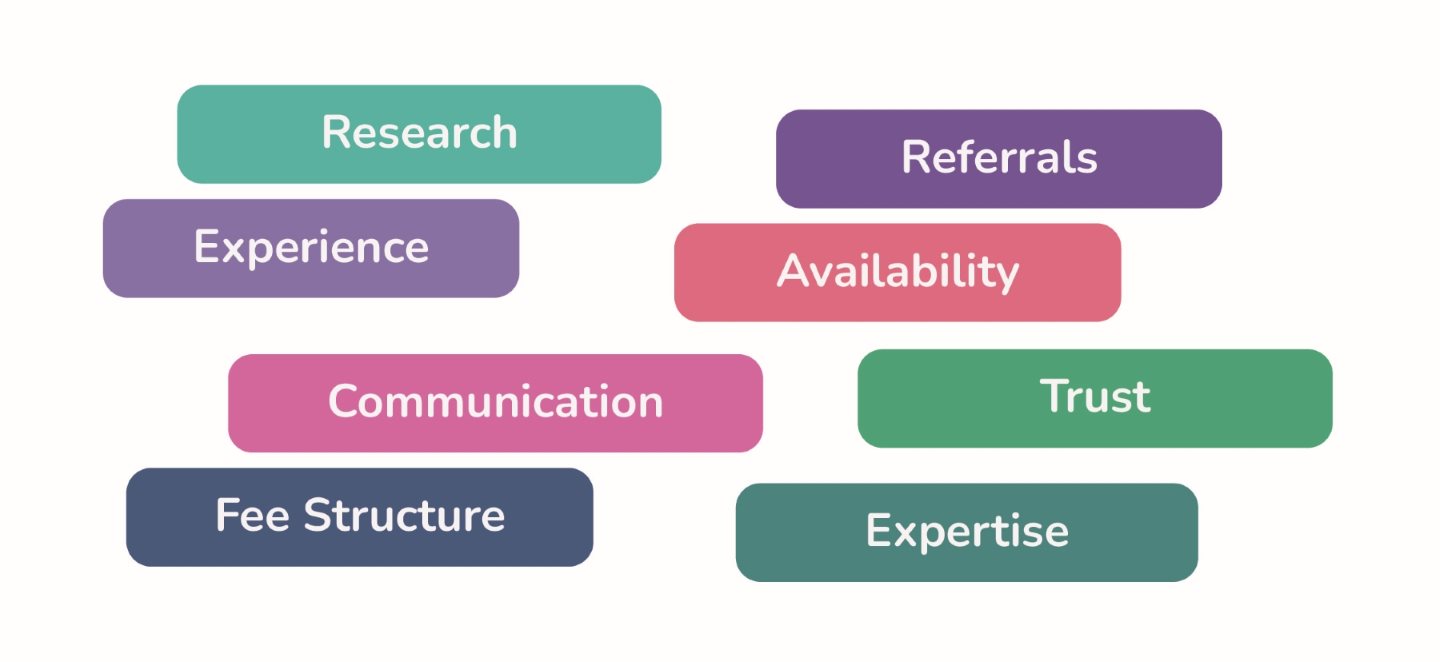Disclaimer: The information provided in this guide is for informational purposes only and should not be considered as legal advice. We are not a law firm and do not provide legal services. It is always recommended to consult with a qualified attorney for personalized legal advice tailored to your specific business needs.
When it comes to running a business, legal matters are inevitable. From choosing the right business entity to navigating complex regulations and contracts, having a skilled business attorney by your side is crucial.
This comprehensive guide will help you understand the Importance of a business attorney, and will walk you through the process of hiring a business attorney, understanding their role, and exploring specific areas where their expertise can make a significant impact on your business’s success.
1. Understanding the Importance of a Business Attorney
Advising on Legal Structure: A business attorney can guide you in choosing the most suitable legal structure for your business, considering factors such as taxes, liability protection, and estate planning.
Compliance and Regulations: They ensure your business complies with relevant laws and regulations, minimizing the risk of legal disputes and penalties.
Contracts and Agreements: A business attorney drafts, reviews, and negotiates contracts, protecting your interests and ensuring clarity in business relationships.
Intellectual Property Protection: They assist in safeguarding your trademarks, copyrights, and patents, preserving your unique brand assets.
Employment and Labor Law: A business attorney helps navigate employment-related legal matters, ensuring compliance with labor laws and protecting your rights as an employer.
2. Types of Business Attorneys
2.1 General Business Attorney:
-
- Provides a broad range of legal services across various industries.
- Suitable for small to medium-sized businesses without specialized legal needs.
2.2 Industry-Specific Attorneys:
-
- Specialize in specific industries such as healthcare, technology, or real estate.
- Familiar with industry-specific laws, regulations, and best practices.
2.3 Transactional Attorney:
-
- Skilled in drafting and negotiating contracts, mergers, acquisitions, and other business transactions.
- Ensures your business interests are protected in complex deals.
2.4 Litigation Attorney:
-
- Specializes in representing businesses in legal disputes, lawsuits, and litigation matters.
- Advocates for your business’s rights and interests in court, if necessary.
2.5 Estate Planning Attorney:
-
- Helps with estate planning, wills, trusts, and succession planning for business owners.
- Assists in preserving and transferring business assets to future generations.
3. Choosing the Right Business Attorney
-
- Inquire about their experience in business law, including relevant industries and practice areas.
- Ask for references or case studies of similar clients they have worked with.
- Determine their success rate in handling cases or providing legal advice in business matters.
3.2 Communication and Availability:
-
- Ensure the attorney communicates clearly and is responsive to your questions and concerns.
- Discuss their availability and preferred modes of communication.
3.3 Fees and Billing:
-
- Discuss their fee structure, billing methods, and any additional costs involved.
- Inquire about retainer fees, hourly rates, or alternative fee arrangements.
3.4 Compatibility and Trust:
-
- Establish a rapport with the attorney and assess if their values align with your business goals.
- Trust your instincts and choose an attorney you feel comfortable working with.
4. Consultation with an Attorney
In this scenario, you are considering hiring a business attorney to draft an operating agreement for a new organization. You want their guidance in deciding between a Private Membership Association (PMA) or a Limited Liability Company (LLC).
Here is an example of a few good questions to ask during your first consultation:
-
- What is your experience in helping to create business entities, and how many clients have you worked with in these areas?
- Can you explain the advantages and disadvantages of forming a PMA and LLC, and how can they be used together?
- What are the legal and regulatory requirements for forming a PMA and LLC in my state, and how long does the process typically take?
- Can you provide an estimate of the costs involved in forming a PMA and LLC, including legal fees, filing fees, and other expenses?
- What ongoing legal and regulatory requirements will my PMA and LLC be subject to, and how can I ensure compliance with these requirements?
- Can you provide guidance on any tax implications of forming a PMA and LLC, and how to structure these entities to minimize tax liability?
- What other legal services do you offer, and how can you help me protect my business and personal assets?
- Can you provide references or case studies of similar clients you have worked with, and what was the outcome of their cases?
Once you’ve explored the different types of attorneys for your needs, make a list of the right questions to ask during the consultation process, and then take the time to find a knowledgeable and experienced attorney who can provide valuable guidance tailored to your specific business needs.
Remember, investing in a skilled business attorney is an investment in the long-term success and stability of your business.
5. Finding the Right Business Attorney
5.2 Initial Consultations: Reach out to potential attorneys and schedule initial consultations. During these consultations, ask the questions we discussed earlier to gauge their experience, knowledge, and compatibility with your business goals.
5.3 Experience and Expertise: Look for an attorney with a strong background in business law, specifically in areas relevant to your needs, such as contract law, intellectual property, employment law, or industry-specific regulations.
5.4 Communication and Accessibility: Ensure that the attorney has excellent communication skills and is accessible when you need them. Prompt and clear communication is crucial in legal matters, so choose an attorney who values open and transparent communication.
5.5 Fee Structure: Discuss the attorney’s fee structure during the initial consultation. Ask about their billing methods, whether they charge by the hour or offer fixed rates for specific services. Make sure you have a clear understanding of their fees and any additional costs that may arise.
5.6 Chemistry and Trust: Building a good working relationship with your attorney is essential. Choose someone with whom you feel comfortable discussing sensitive business matters and who demonstrates a genuine interest in your success.

6. Different Types of Attorneys for Different Business Phases and Industries
Here are a few examples:
6.1 Estate Planning: Planning for the future and protecting your personal and business assets requires the expertise of an Estate Planning Attorney. These attorneys specialize in creating comprehensive estate plans, which may include wills, trusts, powers of attorney, and other legal instruments to ensure the smooth transfer of assets and minimize tax liabilities.
6.2 Startups: If you’re in the early stages of starting your business, consider working with a startup attorney who specializes in advising new ventures, handling legal compliance, and drafting essential documents like incorporation papers, founder agreements, and investor contracts.
6.3 Intellectual Property: If your business relies heavily on intellectual property, such as trademarks, copyrights, or patents, consulting with an intellectual property attorney is crucial. They can help protect your intellectual assets, enforce your rights, and handle any infringement issues.
6.4 Employment Law: As your business grows and you hire employees, an employment law attorney can assist with drafting employment contracts, developing company policies, and ensuring compliance with labor laws and regulations.
6.5 Tax Law: If your business involves complex tax matters, working with a tax attorney can help you navigate the intricacies of tax planning, tax compliance, and resolving any tax disputes or audits.
6.6 Industry-Specific Regulations: Certain industries have unique legal requirements and regulations. For example, healthcare businesses may require attorneys well-versed in healthcare laws and regulations. Research your industry’s legal landscape and consider seeking specialized attorneys if necessary.
Conclusion
Remember that finding the right business attorney is a process that requires careful consideration. Take the time to research and interview multiple attorneys to find someone who not only has the necessary expertise but also understands your specific industry and business needs. Look for an attorney who is responsive, communicative, and demonstrates a genuine interest in helping your business succeed.
Additionally, keep in mind that legal needs may evolve as your business grows. Consider the various phases of your business and the specific legal areas that may require attention, such as intellectual property, employment law, contracts, or regulatory compliance. As your business evolves, consult with your attorney regularly to ensure that your legal strategies and protections remain up to date.
Finally, remember that legal matters can be complex and often require professional guidance. While this guide provides a foundation for understanding the importance of hiring a business attorney and the considerations involved, it is always recommended to consult with a qualified attorney for personalized advice based on your specific circumstances.
By hiring a knowledgeable business attorney and maintaining an ongoing relationship with them, you can navigate legal challenges, protect your business interests, and focus on what you do best – running a successful and thriving business.
Best wishes on your journey to finding the right business attorney and may your business flourish under their expert guidance!
Shalom (with peace),
The Startup Hive TEAM.
At Startup Hive, we help creative entrepreneurs thrive beyond the gig economy by taking control of their financial life. If you consider yourself creative enough to get at least one of your ideas off the ground, we are here for it.
Schedule a Discovery Call and let us help you help people.





